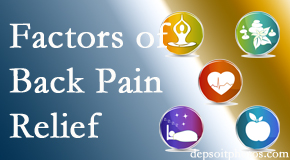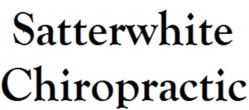What Factors Play A Role in Oxford Back Pain, Arm Pain And Leg Pain?
Your Oxford chiropractor is always looking for relatable stories to answer Oxford back pain patients’ questions. Oxford back pain patients like easy answers. Your Oxford chiropractor at Satterwhite Chiropractic does, too. Check out these factors that guide your relief of Oxford back pain, arm and leg pain.
CHRONIC LOW BACK PAIN, MOVEMENT AND METABOLIC DISEASE
Chronic non-specific Oxford low back pain (LBP) poses a major socioeconomic problem although the mechanisms are not yet fully understood. Impaired motor control is one of the mechanisms which was indicated by a lower movement amplitude of the pelvis, more in-phase coordination, lower ground reaction forces, higher stride-to-stride variability and a higher activity in spine muscles. Impaired motor control during walking is reflected in higher activity of the spine muscles which results in a stiffened lumbar-pelvic region. (1) Dysmobility Syndrome (DMS) (abnormal spine motion) of the musculoskeletal system and adverse health problems in older population is observed. Abnormal spine mobility is linked to metabolic syndrome (MetS) (2), and MetS encompasses a collection of cardiovascular risk factors (insulin resistance, hypertension, glucose intolerance, low HDL-C, and hypertriglyceridemia. (7) DMS and MetS are linked in six domains: elevated body fat, reduced muscle mass, reduced muscle strength, osteoporosis, slow gait speed, and balance problems. Particularly, insulin resistance was correlated to increased body fat, osteoporosis and balance. This research showed a compelling relationship between DMS and the presence of MetS and its mechanisms in the elderly population. (2) Additionally, low high density lipid (HDL) cholesterol and high low density cholesterol/high density lipid cholesterol ratio were significantly associated with low back pain in a middle-aged Japanese population. Oxford back pain patients are similar to them! These findings might back the atherosclerosis-low back pain connection hypothesis. (3) Satterwhite Chiropractic helps Oxford chiropractic patients with Oxford back pain relief and with their wish to fix complicating metabolic issues.
EXERCISE
Satterwhite Chiropractic urges Oxford chiropractic patients to exercise even simple walking. Researchers assessed the effects of an exercise therapy program on pain and physical dimension of health-related quality of life for 57 young adults aged 21 average with musculoskeletal pain. A 9-week stabilization exercise therapy program, performed 60 minutes once a week, revealed enhanced pain and disability and increased spine muscle endurance. This report revealed that a 9-week progressive exercise therapy program can improve physical health and reduce the prevalence of cervical disability and low back pain in young people with musculoskeletal pain. (4) Satterwhite Chiropractic highlights that exercise is effective!
BALANCE CONTROL
Oxford back pain in elderly effectively lowers balance ability. Satterwhite Chiropractic doesn’t see this as a beneficial event! These patients exhibited reduced dependence on ankle and hip strategy for balance control resulting in a discrepancy of postural control from proprioceptive impairment. Moreover, older patients with low back pain are at higher risk for lower leg proprioceptive decrease and balance ability. (5) Satterwhite Chiropractic certainly checks Oxford back pain patients for problems with balance.
HAND GRIP STRENGTH
Another interesting issue is low hand grip strength in women aged over 50 years with low physical activity was significantly related to the existence of low back pain. (6) Satterwhite Chiropractic finds this interesting, but it’s documented!
CONTACT Satterwhite Chiropractic
Listen to this PODCAST by Dr. Loren Miller as he shares his chiropractic care of a back pain patient who experienced several health issues on The Back Doctors Podcast with Dr. Michael Johnson. (His personal journey with back pain and neck pain is also captivating!)
Schedule your Oxford chiropractic appointment today for a Oxford chiropractic treatment plan created just for you because exercise (despite the age of the patient) and good general health equate to enhanced spine motion and motor control.

